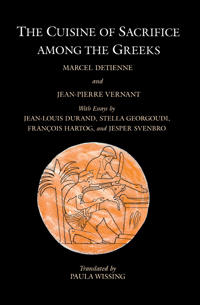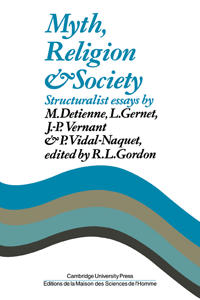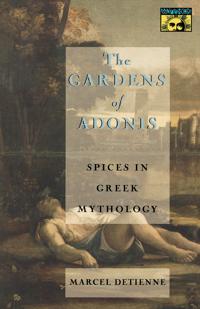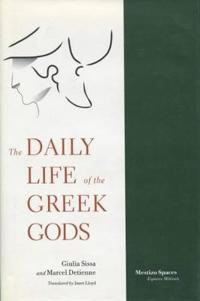The Cuisine of Sacrifice Among the Greeks (Pocket)
avMarcel Detienne, Jean-Pierre Vernant, Paula Wissing
ISBN: 9780226143538 - UTGIVEN: 1989-06For the Greeks, the sharing of cooked meats was the fundamental communal act, so that to become vegetarian was a way of refusing society. It follows that the roasting or cooking of meat was a political act, as the division of portions asserted a social order. And the only proper manner of preparing [...]
Myth, Religion and Society (Häftad)
avR.L. Gordon, Marcel Detienne, Louis Gernet
ISBN: 9780521296403 - UTGIVEN: 198201The essays in this volume explore different aspects of the relation between Greek myth and Greek thought between the Archaic period (Homer and Hesiod) and the Hellenistic period, highlighting both the continuities and the contrasts in the Greek interpretations and 'uses' of myth. With the exception [...]
The Gardens of Adonis (Häftad)
avMarcel Detienne
ISBN: 9780691001043 - UTGIVEN: 199404Rich with implications for the history of sexuality, gender issues, and patterns of Hellenic literary imagining, Marcel Detienne's landmark book recasts long-standing ideas about the fertility myth of Adonis. The author challenges Sir James Frazer's thesis that the vegetation god Adonis - whose prem[...]
The Daily Life of the Greek Gods (Pocket)
avGiulia Sissa, Marcel Detienne, Janet (TRN) Lloyd
ISBN: 9780804736145 - UTGIVEN: 2000-04Despite the rousing stories of male heroism in battles, the Trojan War transcended the activities of its human participants. For Homer, it was the gods who conducted and accounted for what happened. In the first part of this book, the authors find in Homer's Iliad material for exploring the everyday[...]
The Masters of Truth in Archaic Greece (Häftad)
avMarcel Detienne
ISBN: 9780942299861 - UTGIVEN: 1999-12foreword by Pierre Vidal-Naquet The acclaimed French classicist Marcel Detienne's first book traces the odyssey of "truth," aletheia, from mytho-religious concept to philosophical thought in archaic Greece. Detienne begins by examining how truth in Greek literature first emerges as an enigma. He the[...]
Vocabulaire progressif du français - Niveau intermédiaire (2ème édition) A2/B1. Corrigés (Häftad)
avMarcel Detienne
ISBN: 9783125952980 - UTGIVEN: 201112










